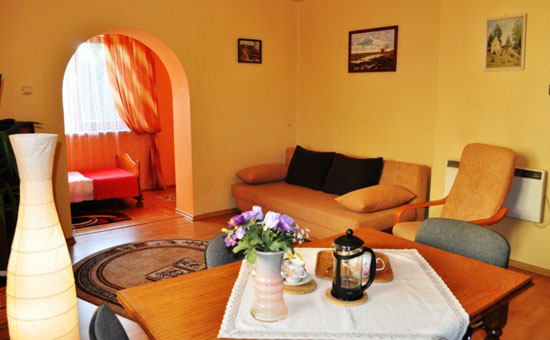Managing An Investment Property in Poland
It is estimated that between 10% and 20% of apartments being bought in Krakow at the moment are destined for the buy-to-let market, with the majority of these units in new developments. Studio flats and two-bed apartments are popular among investors, but by far the most popular for investment is the one-bed apartment (typically around 40–50 square metres).
The rush to buy property as an investment in Poland is largely related to record low Polish interest rates, and the lowest capital values for property since 2005. Savings otherwise languishing in savings accounts are attracted to higher annual returns from rental properties (with the perspective for future capital growth). Inevitably, the increased supply of new rental properties on the market will prevent rents from rising but there is not expected to be any downward pressure on rents either. Many investors are also taking advantage of the low interest rates by leveraging their investments with bank borrowings – effectively getting their future tenants to pay the mortgage with the monthly rent.
While this type of ‘armchair investment’ seems attractive in principle, the reality is that selecting and managing an investment property is harder work than it might appear.
First of all, investors need to perform extensive research to find a property. Depending on the stage of the project, site visits and/or apartment viewings are also needed. After negotiating a price with the developer and modelling a cash-flow to guarantee the required financial returns, legal due diligence on the project and checking of contracts needs to be outsourced to lawyers before a preliminary notary contract can be signed.
Assuming a bank is involved in financing the purchase, there will be a financial due diligence process going on simultaneously by several financial institutions (possibly co-ordinated by a financial broker) to check the buyer’s creditworthiness and to ensure that a mortgage loan will be forthcoming. Thought needs to be given to the size of the loan (relative to the value of the apartment) and the period over which it will be repaid. Most likely, the initial down payment will be a cash deposit by the buyer, then the selected bank will step in and begin paying interim installments until completion.

Once the apartment has been paid up and handed over to the buyer, a technical inspection should take place to ensure there are no snags or defects inside the dwelling before final contracts are signed. At this stage, the buyer should ensure that they have adequate insurance for their apartment and register with the local authorities for property tax purposes as well as signing up with utility companies. In Poland, the majority of apartments are handed over to buyers at ‘shell and core’ standard, so buyers also need to come up with a plan to decorate and equip the apartment.
Once the fit-out process has been completed, the apartment is ready for rental and a tenant needs to be found – usually through a real estate agency, which will typically charge anywhere between half a month and a month’s rent to identify, vet and prepare a contract on the landlord’s behalf – usually for a 12-month period.
Most tenancies are unproblematic, but there is always the need for communication with the tenant to resolve unforeseen issues or simply to renegotiate a lease extension. Problems that call for communication with the tenants include: late payment of rent, changes in monthly community fees, which the tenant will need to be advised of, intervention in case of leaks or unexpected breakages and/or regular utility checks.
Leach & Lang are willing to advise on all parts of this process: from investment property selection, through help arranging finance, utility connection, insurance arrangement, registering for tax, fit-out, letting and ongoing management to provide a complete hands-off service for those investors who want to experience a truly ‘armchair investment.’


At this stage, the buyer should ensure that they have adequate insurance for their apartment and register with the local authorities